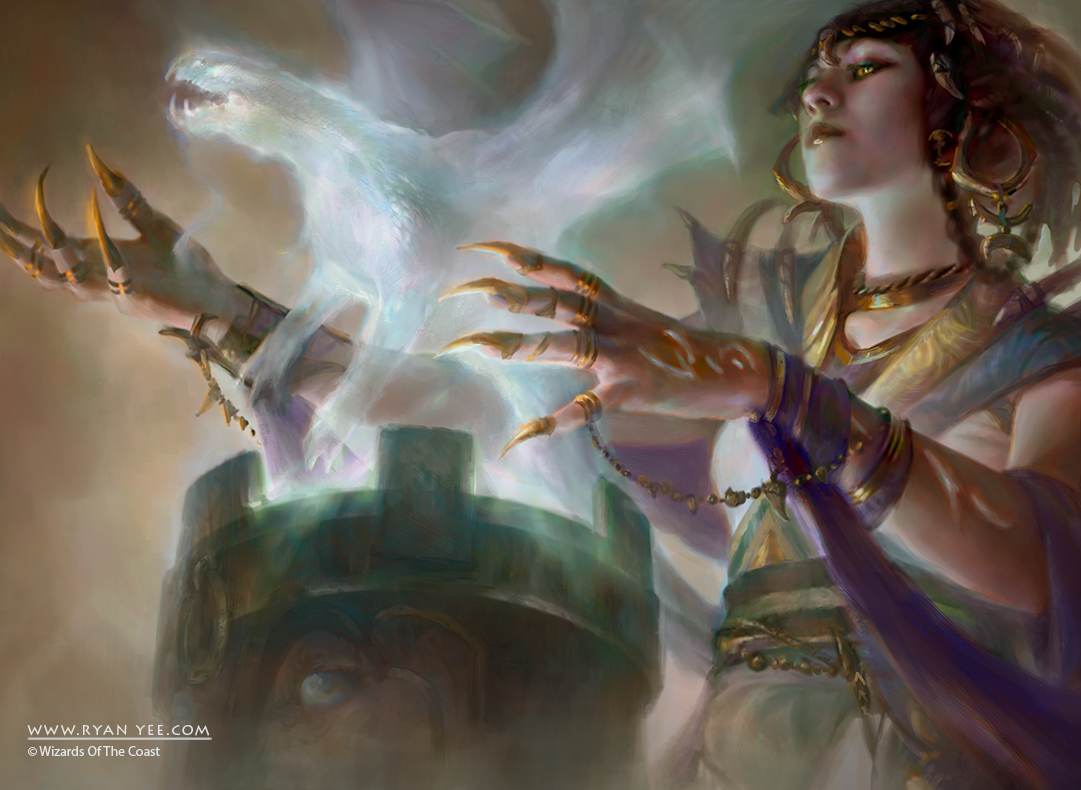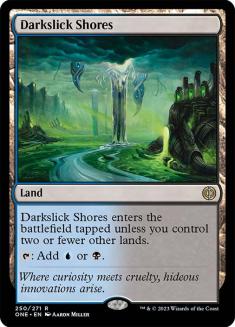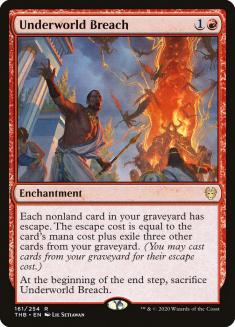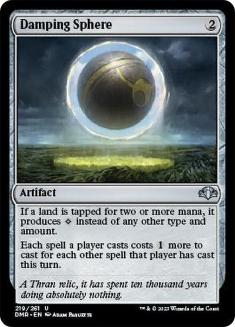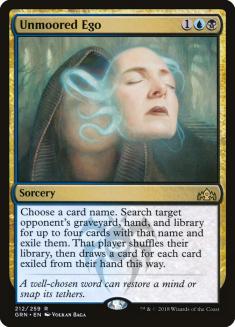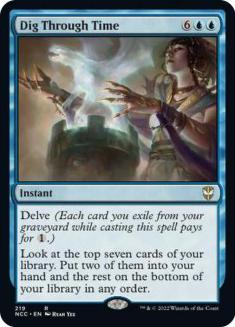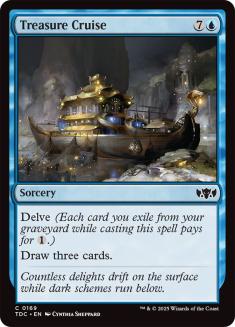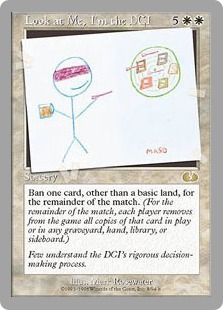Pioneer has been my favorite format to play outside of Theros Beyond Death Standard. Even with the format in turmoil, fans of powerful blue strategies have been able to relive the good old days. I’ve even been told that there are some younger mages that, until now, have never had the chance to delve away their problems and receive the two best cards from the top of their deck. Control was really good a few years ago, and it will be a viable option in Pioneer once the next set of changes sweep through.
Creatures (8)
Planeswalkers (3)
Lands (25)
Spells (24)

At this moment in time, the overall format health of Pioneer is poor. This is not because control is weak or cards I enjoy aren’t viable. I have grown fond of Dimir Inverter in the last few weeks of testing. It contains the raw elements of control with a potent combo kill. The early turns of card draw, disruption, and spot removal lead into the fueled Dig Through Time for the combo finisher: this is exactly how I enjoy playing Magic, even if it seems like I’m a control purist.
Those who have followed my work know that I love some eccentric combinations and have crafted quite a few back in my day. From Greater Gifts and Mass Polymorph to the most recent example of Ironworks, I have always looked for a way to uppercut the competition with cards outside of the mainstream. Sometimes it works perfectly in the world of control, where the answers of the format are so potent that a standalone Teferi, Hero of Dominaria feels like a one-card combo. Either way, I’ve never been a full tap-out control player who yearns for an Elixir of Immortality victory. Having Inverter of Truth land a Fatal Push, Thoughtseize, Opt, and Dig Through Time is good enough for me. Unfortunately for Pioneer, it isn’t good for the format.
Creatures (14)
Lands (24)
Spells (22)

Dimir Inverter isn’t the only issue Pioneer is facing, as Lotus Breach is arguably more oppressive. Unlike Dimir Inverter, Lotus Breach breaks the rules of the format by producing an ungodly amount of mana very early in the game. Decks that operate on this type of power level don’t make it very long in formats, but luckily for fans of broken combo decks, the bannings for Pioneer have returned to the normal announcement time. In the meantime, let’s analyze the oppressive nature of each deck and predict what cards must be removed to return the format to a state of sanity.
Todd is not ranting about decks that beat his Llanowar Elves strategy, but the boring metagame that Pioneer has warped into. Some competitive players have made light of the two-deck format Pioneer has become and even joked about the success rate of anyone who would dare choose from outside that list. Each of the older formats has a powerful pool of cards, which means a large range of decks can win regardless of how defined the metagame is. Even with Dimir Inverter and Lotus Breach running the streets, there will be some Mountain fans, Sultai Delirium enthusiasts, and Azorius Control fanatics, all vying for the title of “Kingslayer.” In Indianapolis this week, there will be other decks that make the Top 8, but the lion’s share of high finishes will fall to one of the two public enemy decks being discussed.
Dimir Inverter is what I wanted Esper Control to be at the beginning of the format. I knew there was a control shell that could maximize the might of Thoughtseize, Thought Erasure, Fatal Push, and Dig Through Time. Dimir Control lacked a workable sweeper, making me immediately move to white for Supreme Verdict. This addition was amazing, providing me a great deal of format success very early on.
The issue was, and is, the manabase. Not having access to Darkslick Shores made the early-game miserable and completely reliant on Concealed Courtyard. With all the blue spells I wanted to cast, this was problematic to say the least. Even with the mana struggles, I was still taking down matches with relative ease. After the two combo decks emerged, the metagame quickly became a wasteland for decks that had any dead cards in Game 1, which meant the end of traditional control and aggro decks.
Lotus Breach is the more punishing deck of the two against those packing a bunch of removal spells. This combo deck runs away with nearly every Game 1, as it doesn’t care much about interacting with the opponent as much as its early solitaire turns into its victory formation. This deck can win as early as Turn 3 but is a consistent Turn 4 or Turn 5 finisher. Off the back of Lotus Field, propelled by the Modern/Pioneer superstar we call Arboreal Grazer, Lotus Breach combos off through any Game 1 interaction. The deck is full of card draw and ways to untap Lotus Field, and ends with Underworld Breach. The redundancy and an effective reprint of Yawgmoth’s Will are enough to push through what little defenses an opponent may have.
Both decks get through hand disruption easily and are only affected heavily by cards in the sideboard. Lotus Breach may have the edge Game 1 but does struggle mightily against Damping Sphere. For all those playing competitive Pioneer, make sure any deck you have is equipped with multiple copies of this hate artifact.
Cards like Unmoored Ego are much worse against both decks because they have alternative ways to win the game after they sideboard. If you were able to hit them Game 1 with an effect like that, it would be backbreaking. It takes a simple addition of win conditions that Granted would have found you from the Lotus Breach sideboard and a Pack Rat from the Dimir Inverter sideboard, to easily defeat that strategy. With the resiliency each combo deck has against hate, there is officially a problem in the format.
Even though there have been formats dominated by decks that feel unbeatable like these two, alternate styles of play have some viability. If combo decks get too good, control decks pack all the necessary hate and bring them down from the top spot.
That strategy has been attempted in Pioneer and it failed miserably. It isn’t because of the weak disruption control has access to or the power of each combo deck, but due to the one blue card that I can’t deal with losing again.
Even though I’m watching myself type this in real time, I’m still in disbelief. Calling for the banning of Dig Through Time is something that may haunt me to the grave; however, it must be done. There is a reason why Dimir Inverter laughs off hand disruption or counterspells to help thwart an early victory. This combo deck utilizes four copies of Dig Through Time to embarrass any attempt at a one-for-one battle during the game. Regardless of the matchup, Dimir Inverter can trade off resources, even go negative, and still have that safety valve to kill easily from one card draw spell.
Dig Through Time never saw the light of day in Modern and that was for a good reason. The existence of fetchlands made that auto-ban an easy call, but now we have all seen its power with just a few Fabled Passages. Dig Through Time doesn’t need Polluted Delta to be broken, just a few cycling cards and cheap interaction.
It’s rare for Dimir Inverter to have to wait past Turn 4 to get the perfect setup going at instant speed. It helps that staples from Legacy, Thoughtseize and Fatal Push, are available in Pioneer to fuel one of the best card draw spells ever. Without access to these, it might have taken longer for us to see the might of Dig Through Time. For me, I knew it was coming since the inception of the format.
Some cards are too good for any format and the game is better off without them. Losing Dig Through Time will heavily weaken any future control strategy from Pioneer, but it will embolden decks that have been pushed to the brink of extinction in this metagame. The issue isn’t the combo in Dimir Inverter; it’s the mind-numbing consistency that Dig Through Time provides. If the deck had to run off Treasure Cruise, it would be a much weaker but viable deck in Pioneer.
This is where I break from the “ban Dig Through Time” crowd. Most folks think that Treasure Cruise must go with it, but I do not think that’s the case. Both spells are too powerful with the existence of fetchlands, but the limitation of Treasure Cruise as a sorcery that requires a heavier dose of delve is enough to keep it in check. It would become one of the format staples and lead to some decks being lifted over others; however, it would not push the metagame to a two-deck stalemate that it has become.
Banning Dig Through Time is the most painful upcoming decision that is inevitable, but that doesn’t affect Lotus Breach in a significant fashion. The ban that will hit this deck is a bit less controversial and is guaranteed to be Lotus Field itself. Management will not get cute with this banning and will take out the actual villain from this story. There’s a small chance they preemptively remove Underworld Breach to avoid future problems, but I do not see anything in the current card pool that would push that card over the edge. There is a lot that can go wrong if Lotus Field sticks around, making it the card that will join Dig Through Time in permanent exile.
I know we have all grown tired of the constant bannings and discussion that precedes them. I need to remind myself that Wizards of the Coast (WotC) gave us plenty of warning, when Pioneer was announced, that this type of action was going to take place to ensure format health moving forward. It’s a better model to follow than starting the format off with twenty banned cards and seeing how it plays out. They allowed the players to explore the bounds of the card pool, try to break it, and then act based on how restrictive the format became. This led to many interesting decks being created that have a strong claim once the format is cleaned up. Only a few perpetrators had to be removed, while many others will flourish once again after this next round of exits takes place.
This will not be the last time WotC will have to step in to correct the issues of Pioneer; however, the frequency will continue to drop. With all the attempts to break the format from players at the highest level, we aren’t in a place where deck choice is dead. Prior to these two combo decks, there were a dozen archetypes that ruled the leaderboards and that’s where we will be again after the removal of Dig Through Time and Lotus Field. If Treasure Cruise sticks around, Dimir Inverter will still be a viable combo option. If it’s decided that Inverter of Truth, Dig Through Time, Lotus Field, and Underworld Breach are terminated, then the format will return to that diverse field, filled with aggressive, midrange, and control alternatives.
If that heavy banning outcome takes place, and you love combo, there will at least be Heliod, Sun-Crowned to fall back to!

